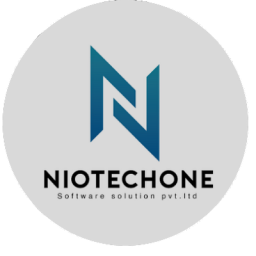Introduction
Mobile app development continues to evolve at an unprecedented pace. In 2025, businesses are faced with a critical decision: Should they build native apps or choose cross-platform development? With technologies advancing and user expectations skyrocketing, this decision can impact cost, time-to-market, performance, and user experience.
At Niotechone Software Solutions, we specialize in custom software development, Microsoft .NET development, and mobile app solutions that help businesses stay ahead in the competitive digital landscape. In this article, we’ll explore the future of mobile app development, comparing cross-platform vs native development, their benefits, challenges, and what to choose in 2025.
What Is Native App Development?
Native development means building an application specifically for a single platform—iOS or Android—using platform-specific programming languages and tools.
For iOS, developers use Swift or Objective-C.
For Android, they use Kotlin or Java.
Benefits of Native Apps:
High performance
Full access to device features (camera, GPS, sensors)
Better UI/UX consistency
Offline functionality
Challenges:
Higher development cost
Longer time-to-market
Separate codebase for each platform
What Is Cross-Platform App Development?
Cross-platform development allows building an app that runs on multiple platforms (iOS and Android) with a single codebase, using frameworks like:
Flutter (Google)
React Native (Meta)
.NET MAUI (Microsoft)
Benefits of Cross-Platform Apps:
Faster development & reduced cost
Single codebase for multiple platforms
Easier updates & maintenance
Quicker time-to-market
Challenges:
Limited access to some device-specific features
Performance may be slightly lower than native apps
The 2025 Mobile App Landscape
1. The Rise of .NET MAUI for Cross-Platform Development
Microsoft’s .NET Multi-platform App UI (MAUI) has emerged as a game-changer in 2025, enabling cross-platform app development using C# and .NET. Businesses adopting .NET MAUI benefit from:
Native-like performance
Access to native APIs
Unified development experience
At Niotechone, our expert dot net developers leverage .NET MAUI to build enterprise-grade mobile apps that work seamlessly across platforms.
2. Flutter and React Native Continue to Dominate
Flutter and React Native remain popular for building cost-effective, high-performance apps. Flutter offers fast rendering and smooth animations, while React Native provides code reuse and a large ecosystem.
3. Progressive Web Apps (PWAs) Gaining Popularity
PWAs are bridging the gap between web and mobile apps, allowing businesses to provide app-like experiences without app store installation.
Which Should You Choose in 2025?
Your decision depends on:
Budget & Time → If you need faster delivery at lower cost, cross-platform is ideal.
Performance & UX Priority → If your app demands high-end performance and complex animations, native development is the best.
Future Scalability → If you want a single team maintaining one codebase, go cross-platform with .NET MAUI or Flutter.
How Niotechone Helps Businesses with Mobile App Development
As a leading custom software development company, NiotechOne offers:
Microsoft .NET MAUI app development
Native iOS & Android development
Cross-platform solutions using Flutter & React Native
Enterprise-grade app security and scalability
Whether you need a feature-rich native app or a cost-effective cross-platform solution, our expert dot net developers and mobile app specialists ensure speed, security, and performance.
Conclusion
In 2025, both native and cross-platform development have their strengths. Businesses should evaluate cost, performance needs, and future scalability before deciding. If you want expert guidance on mobile app strategy,Niotechone Software Solutions is here to help with secure, scalable, and high-performance apps.


Write a comment ...